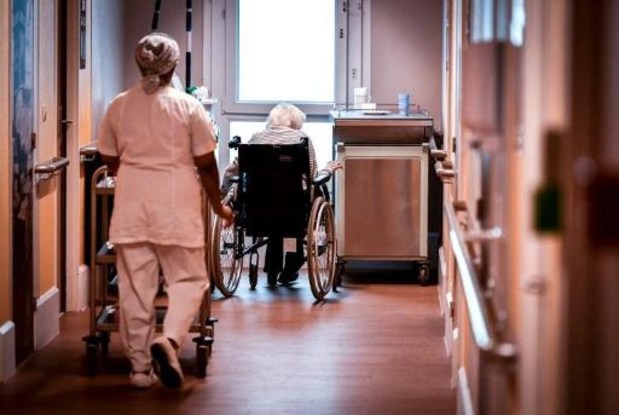Belgium is one of the biggest spenders in the nursing home sector, according to the European Commission, and part of the reason is that people are entering elderly care homes far too soon.
Nearly one in four Belgian residents enters a nursing home prematurely, Le Soir reports.
The result is a massive burden on Belgium’s overall healthcare budget that’s only forecast to get worse: by 2030, spending on nursing care is expected to increase by a further 14%.
Regional differences in Belgium’s overuse of elderly care facilities
In Europe, just 4.3% of people over the age of 65 live in a nursing home, while 8.7% of over-65s receive care at home.
But in Belgium, 8.5% of people over 65 years old live in a residential care facility, compared to 5.1% being cared for at home.
“It is interesting to note the significant geographical variability in the use of residential and home nursing care in Belgium,” the Commission’s report reads.
“Compared to Flanders and Wallonia, the Brussels-Capital Region has a higher percentage of elderly people living in residential care (10.3% in Brussels compared to 9.0% in Wallonia and 8.0% in Flanders) and the lowest percentage of home nursing care (3.3%), together with the provinces of Liege and Luxembourg.”
The Commission recommends improving home care services for people who are not yet very dependent so that less people end up in a care centre before they really need to.
Not always a matter of health, but rather loneliness
Brussels Health Minister, Alain Maron (Ecolo) confirmed that there are a large number of people with a low level of dependency living in nursing homes, but says there are driving factors for choosing to move to one other than an acute health need.
“According to the Health and Social Observatory, it is not always a question of age-related needs, but sometimes a question of loneliness, or even difficulties with access to housing,” Maron explained.
“The problem is therefore complex. To remedy this, we have launched the ‘autonomy guarantee’ concept, which includes a series of support measures for the home care sector, mainly family helpers, the main regional lever for action in an area that is essentially dependent on the federal government.”
Related News
- Wallonia wants to improve quality of life in nursing homes
- Five care homes added to Care Inspectorate’s blacklist
- Residential care centres threaten lawsuit if not included in VAT reduction
People who enter Belgian care homes have a 50% greater chance of dying within two years compared to those who stay at home, and the sector has long been ripe for reform.
In Wallonia, Health Minister Christie Morreale (PS) is pushing for more funding to increase capacity, but says the region isn’t seeing the same issue with elderly people moving in before they really need to.
“We don't really see these premature arrivals in care institutions because on average in Wallonia, people enter them at the age of 82,” a spokesperson for her office said.
“The residents are increasingly dependent when they arrive and this is a challenge: we must be careful not to transform our residences into hospitals. The diversity of ages and profiles of the residents is, therefore, an important element, although not the only one.”

